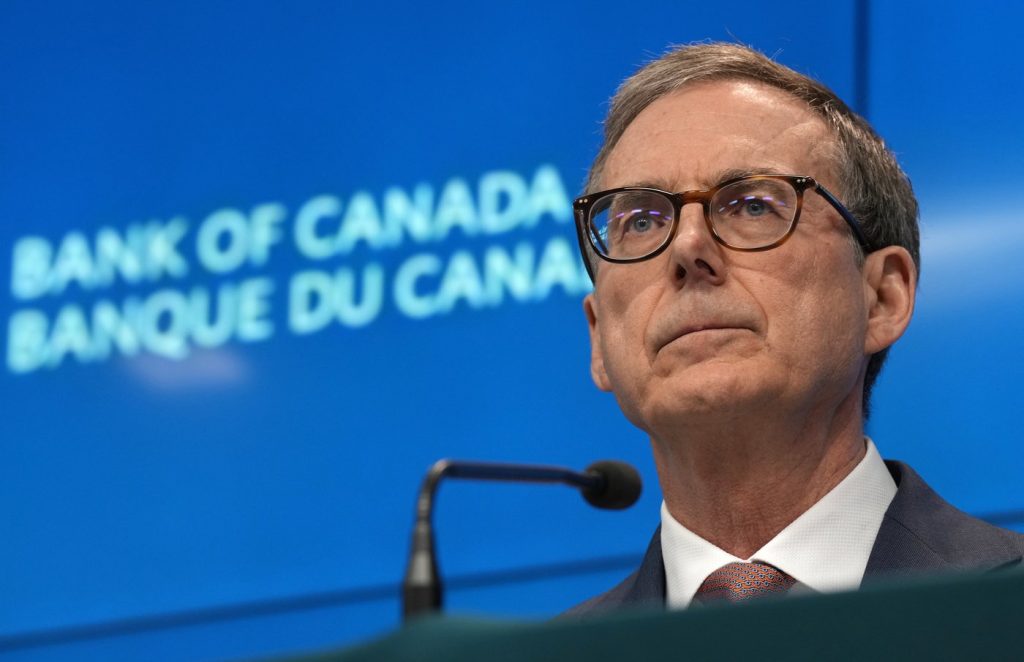OTTAWA — This week, the Bank of Canada is set to examine new national inflation figures amid a backdrop of uncertainty fueled by tax changes and trade tensions. Statistics Canada is expected to release the consumer price index (CPI) for May on Tuesday, and economists anticipate that inflation edged up to 1.8 percent year-over-year for the previous month.
In April, the annual inflation rate had slowed significantly to 1.7 percent, primarily due to declining gasoline prices linked to the expiration of the consumer carbon price. However, Benjamin Reitzes, BMO's managing director of Canadian rates and macro strategist, predicts that inflation cooled slightly to 1.5 percent in May, attributing this to a deceleration in shelter inflation and a smaller increase in gas prices compared to the same period last year.
The Bank of Canada will not only scrutinize the headline inflation number, but also analyze various inflation metrics to ascertain the underlying trends. Reitzes indicates that the central bank is keenly aware of the complexities surrounding the current inflation landscape, which Bank of Canada Governor Tiff Macklem described as "complicated." He highlighted that the persistent firmness in underlying inflation might signal early consequences of the trade war with the United States on domestic inflation.
The central bank has maintained its policy rate at 2.75 percent over the past two meetings, biding time for clarity on how the ongoing tariff disputes will affect inflation. The direct impact of tariffs is likely to raise prices for businesses; however, it remains uncertain how quickly firms will transfer those costs onto consumers. In addition, potential economic slowdowns could lead businesses and consumers to curtail spending, which may help keep inflationary pressures in check.
Katherine Judge, a senior economist at CIBC Capital Markets, opines that inflation probably increased in May partly due to tariffs. She suggests that rising food prices reflect counter-tariff impacts, while core goods prices may soon reflect broader tariff effects. Judge anticipates a deceleration in rent inflation following an unexpected spike in April, aligning with industry data that counters rising food prices.
Furthermore, Judge points out that the upcoming inflation reading will incorporate adjustments to Statistics Canada's CPI basket. However, such modifications typically do not significantly affect the overall inflation number. Reitzes notes that discerning the tariffs' impact on inflation data has proven challenging, but the Bank of Canada is closely monitoring these dynamics. The bank is utilizing a team of economists to analyze all relevant data for any discernible trends related to tariffs.
Food inflation has intensified in recent months, particularly in areas where Canada is implementing counter-tariffs. Reitzes remarks that this could also be a delayed response to earlier weaknesses in the Canadian dollar affecting food prices. Another variable complicating inflation data is recent tax changes by the federal government. For instance, a two-month GST holiday skewed price data for various groceries and household items, while the cessation of the consumer carbon tax has contributed to a dip in headline inflation.
Macklem stated that the Bank of Canada is increasingly emphasizing CPI measures that exclude tax influences to gain clearer insights into inflation trends. He indicated that inflation excluding taxes was 2.3 percent in April, unexpectedly higher than the bank's predictions. Additionally, he mentioned that the Bank is scrutinizing its preferred core inflation measures more intensely, noting that while these figures currently exceed three percent, there may be "potentially some distortion" inflating price pressures.
With alternative core inflation measures presenting lower results, the Bank is considering a broader range of factors in assessing future inflation trajectories. Macklem acknowledged the unusual volatility in the data and remarked that it remains uncertain if this trend is temporary or persistent.
Before making its next interest rate decision on July 30, the Bank of Canada will evaluate two additional inflation reports. Should inflation appear to remain subdued in these reports, Reitzes postulates that the central bank might find an opportunity to lower interest rates to stimulate the economy amid tariff pressures. However, he cautions that for such a move to be viable, inflation data must support it, which, at present, it does not.
This report highlights the current complexity of the Canadian economic landscape, especially as it pertains to inflation and its influencing factors.











